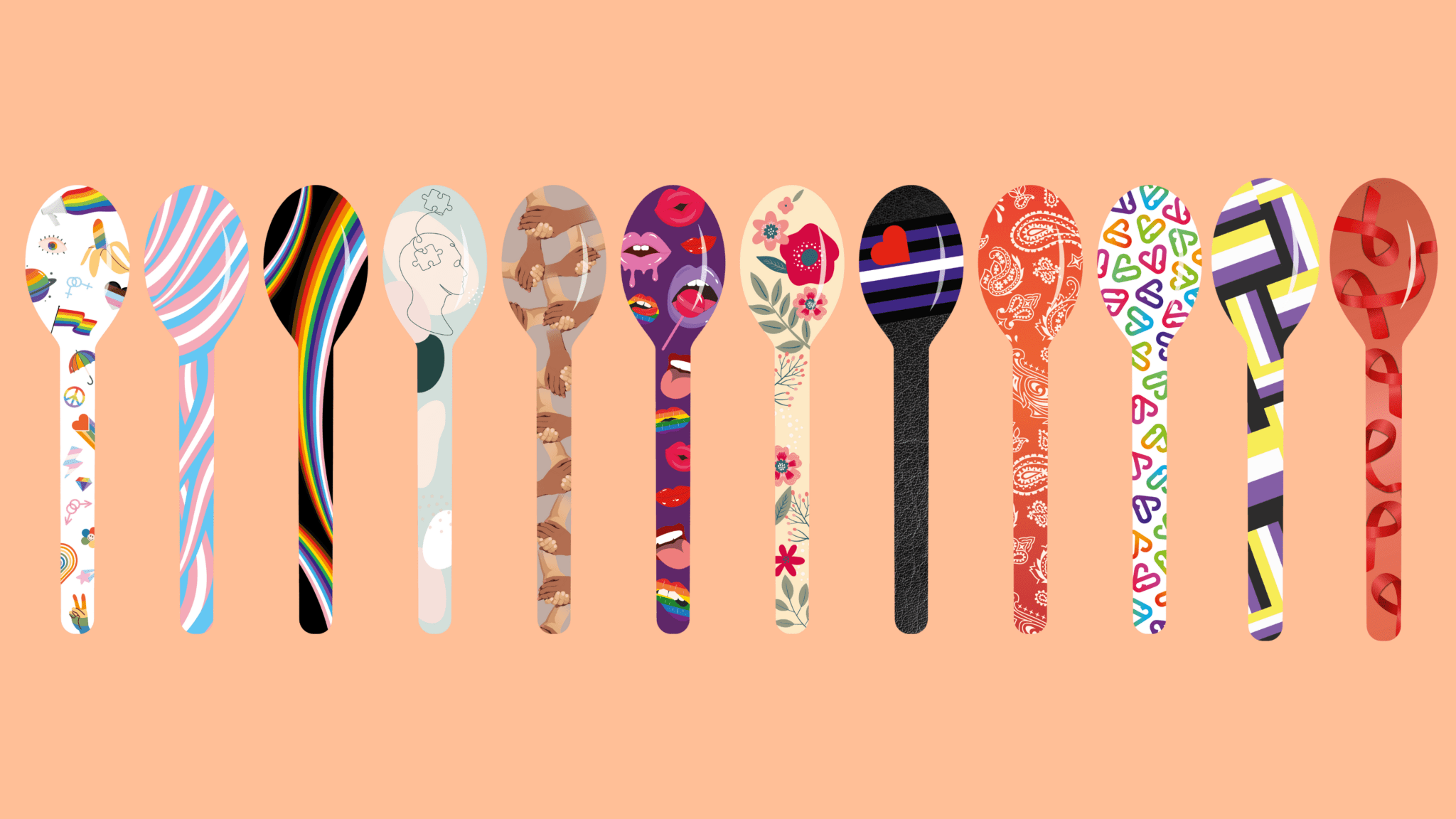Jonathan, you have launched a new campaign: the so-called "spoon theory". Explain: what's it all about?
In recent years, we have noticed that queer people who have been stigmatised several times in particular have become more open about topics such as Mental well-being and mental illness. Queer men in particular have a strong need for exchange in relation to mental health, especially in times like the pandemic, when many counselling centres and contact points were not available. In addition, mental health also has an effect on sexual health, which is why it is directly linked to our mission.
The idea for the "spoon theory" came from the US-American activist Christine Miserandinowho developed this theory in 2003 to explain the management of energy in chronic illnesses. Here, "spoons" are metaphorical units for energy, whereby each person has a differently limited number of them. For example, someone with a chronic or mental illness needs more spoons (i.e. energy) to cope with everyday life than a person without these limitations. The situation is similar for people who are structurally discriminated against. Over the years, this theory has developed into a "spoony movement" in order to better understand the use of resources. And we now want to bring this debate into the gay and queer communities.
It sounds a bit theoretical at first - how do you explain this theory to people?
We have found various ways to visualise the theory. These include flyers with various motifs that represent different aspects of queer life, for example non-binary pride, trans pride, gay pride or the Aids ribbon. These spoons link to the website where the theory is explained. Our aim is for people to be able to organise their everyday lives better and feel encouraged to talk to each other about their experiences. For example, by normalising the sentence "Hey, I don't have that much energy today; I think I hardly have any spoons left today" to a certain extent. Or "I only have a few spoons left today and I still have to manage this or that with them." We want to promote a community of solidarity in which people can support each other.
The spoon theory may seem abstract at first, but it is relevant for all people. Queer people often carry additional burdens due to discrimination in society. For example Minority stress - In other words, a form of stress that only minorities are exposed to due to discrimination and stigma. There are also people with mental health problems, such as depression, panic attacks or anxiety disorders, which affect their energy levels. For example, I myself spent four months in a day clinic and had far fewer spoons during this time because I had to use a lot of energy to get out of bed and to the clinic in the morning. The spoon theory gives you a tool to explain this to other people: "Hey, you might have had ten spoons at your disposal yesterday, but unfortunately I only had five. That's why my day was more difficult to manage and I didn't manage to call you." This theory can help to make difficult topics more understandable and help people to recognise their own limitations.
How will the campaign be implemented and where will you come across it?
We've noticed that many people who are engaging with Spoon Theory and applying it to their own lives have found many followers online, be it on TikTok, Instagram or Reddit. These online movements have connected people because they have realised that the theory doesn't just affect them, but others too. We want to capitalise on this by focusing our campaign heavily on online platforms.
The campaign will mainly be online, via our Instagram channels and an animated film on YouTube. In addition, postcards and flyers will be displayed in AIDS service centres and checkpoints that refer to the online resources. There will also be on-site counselling services to facilitate face-to-face conversations. We want to build a community that supports each other online and offline.
Who do you want to address and what goals are you pursuing?
Our campaign is not only aimed at sufferers, but also at relatives, carers and society as a whole. For example, I was able to use the theory to explain to my in-laws and grandparents what it is like to live with depression. We want to raise awareness of mental health and encourage people to talk about their experiences.
Our hope is that many people will pass on the flyers during the CDS season, pass the spoons on to others and start conversations. We also often receive messages telling us that people are very interested in the topic of mental health. And we want to continue working on this as a campaign. With the EMIS studythe largest European study on the health of gay and bi+ men and trans people, is also partly about mental health. Our prevention work aims to bring people into dialogue and remove taboos. We want to reduce shame and encourage people to seriously enquire about how others are feeling. To ask "How are you?" and to be genuinely interested in the answer. That is what we hope and wish for. Our aim is to create a supportive community that supports each other and removes taboos around mental health.










